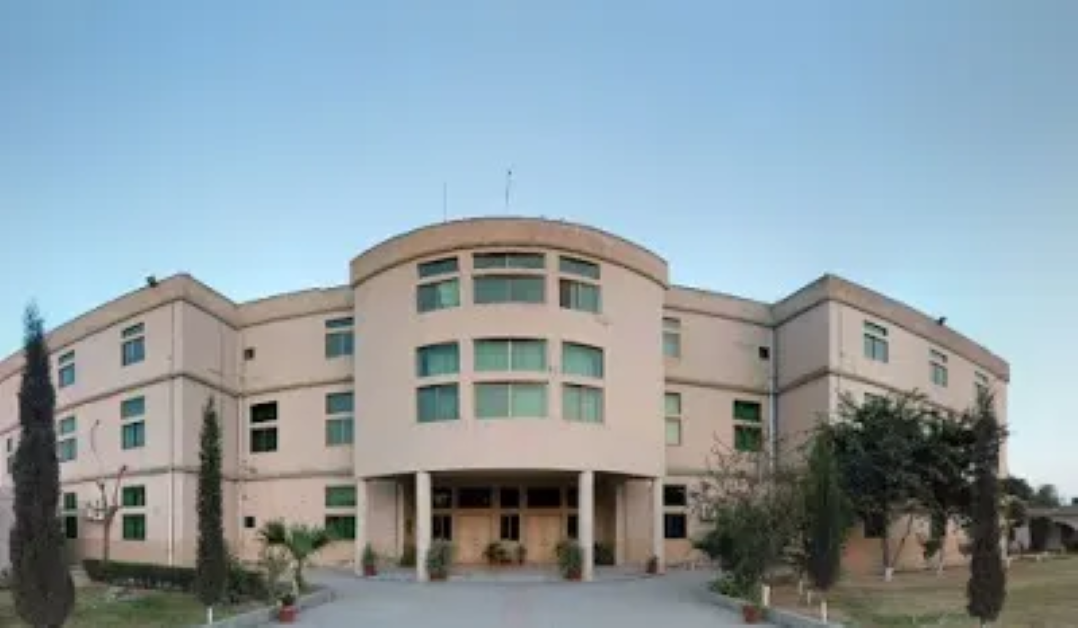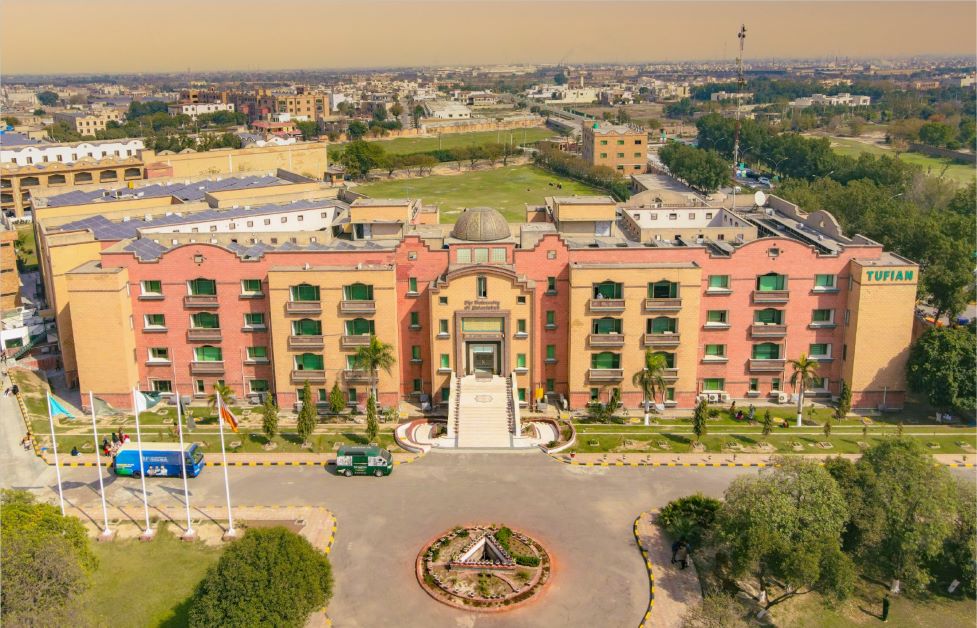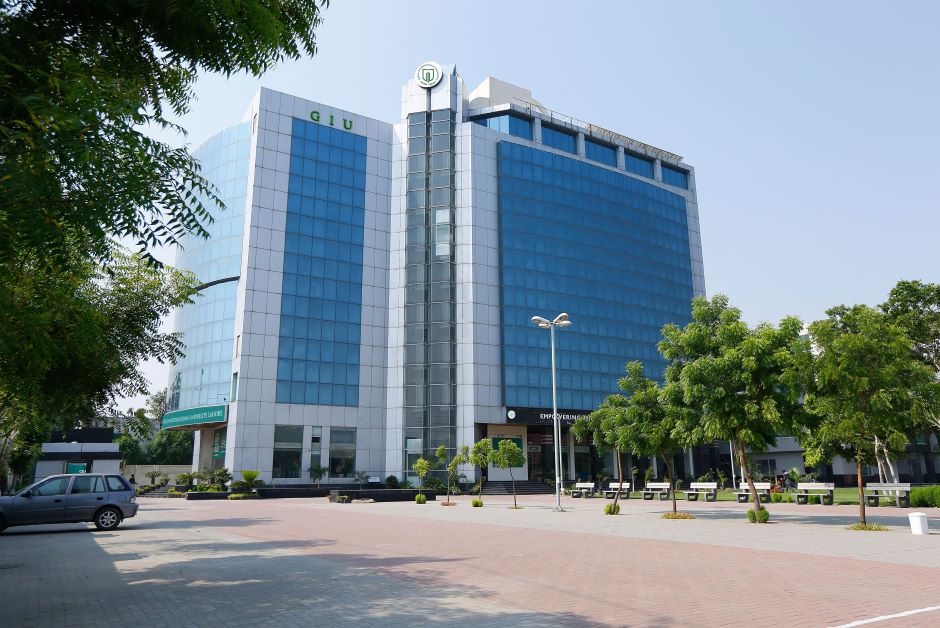Founded in 1975, the University of Engineering and Technology (UET) Taxila has grown into a renowned institution for engineering education in Pakistan. In 2005, UET expanded its reach by establishing its first sub-campus in Chakwal, which initially offered programs in Electronics and Mechatronics Engineering. Located within the historic Kachehri complex on Talagang Road, this sub-campus has since catered to multiple student cohorts.
The Chakwal sub-campus provides four-year undergraduate degrees in Electronics and Mechatronics Engineering. As part of its future expansion, plans are underway to introduce three additional departments offering degree programs in Electrical, Mechanical, and Gas and Petroleum Engineering, supported by the Higher Education Commission (HEC).
Governance and Administration
The administrative structure of UET Taxila extends to its Chakwal sub-campus, where the Campus Director, operating under the Vice-Chancellor’s leadership, oversees academic and executive affairs. The university follows UET Taxila’s standardized policies and procedures. Additionally, UET Taxila has proposed the establishment of another campus in Pind Dadan Khan, Jhelum District, to further extend its educational services.
At the university level, the Governor of Punjab acts as the Chancellor, while the Education Minister serves as the Pro-Chancellor. The university’s main governing body is the Syndicate, while the Academic Council holds the highest academic authority.
The Vice-Chancellor leads the institution, supported by Deans, Department Heads, Directors, and senior officers, including the Registrar, Treasurer, Controller of Examinations, and Project Director. Their collective role is to ensure the effective implementation of the University Act, Statutes, and Regulations.
Location and Facilities
The main UET Taxila campus is situated 5 km from Taxila city, near the Mohra Shah Wali Shah railway station on the Taxila-Havelian line. Positioned 35 km from Islamabad and Rawalpindi, the campus benefits from its strategic location along the Rawalpindi-Peshawar highway.
Spanning 163 acres, the university houses academic departments, faculty residences, student hostels, guest accommodations, post offices, and banking facilities. Daily transport services connect students and faculty to Islamabad, Rawalpindi, and Wah Cantt.
Vision and Mission
UET Taxila aspires to be an internationally recognized institution, delivering high-quality education in engineering and emerging technologies. Committed to excellence, the university aims to equip students with the necessary knowledge and ethical values to contribute to the nation’s socio-economic development.
The university’s mission is to produce competent graduates capable of addressing the country’s technical and industrial needs. A dynamic learning environment fosters academic growth, technical expertise, and moral integrity among students.
Accreditation and Recognition
UET Taxila operates as an independent institution accredited by the Higher Education Commission (HEC) of Pakistan. It adheres to rigorous academic standards and maintains well-equipped libraries to support research and learning. The university is recognized for its dedication to engineering and technology education.
Central Library and Resources
The Central Library serves as a hub for knowledge-sharing, supporting research and academic activities. With a seating capacity for 400 readers, it provides a conducive study environment and operates from 8:00 AM to 9:00 PM on working days.
The library collection includes encyclopedias, dictionaries, handbooks, research journals, and reference materials across various disciplines. Moreover The inventory consists of over 63,500 books, covering engineering, humanities, social sciences, and Islamic studies. Library members can borrow books within specified limits, and reserved materials can be requested through a reservation system.
A specialized Digital Library and an IT center, equipped with 100 personal computers and free internet access, enhance the research experience for students and scholars.
Student Support Services
Health Facilities
The university provides healthcare services for students and staff. Key aspects include
- Free medical consultations by the Medical Officer
- Prescription-based medicine provision
- Night dispensary services for emergencies
- Immediate medical assistance for severe cases, with treatment expenses borne by the student
- Mandatory medical history submission for hostel residents
Hostel Accommodation
Limited on campus hostel facilities are available for male students. Besides the room allocation is merit based, and students involved in disciplinary violations or poor attendance may lose their accommodation privileges. Reapplication is permitted upon improvement in attendance.
Transport Services
The university offers bus services connecting the campus with Rawalpindi, Islamabad, Wah Cantt, and Hassanabdal. However, transportation is subject to policy changes and financial considerations.
Contact Information UET Taxila
For further inquiries, prospective students and stakeholders can reach out through the following contact details
- Address: Old Kachehri Building, Talagang Road, Chakwal
- Phone: 0543-602003
- Email: info.chakwal.campus@uettaxila.edu.pk
- Website: www.uettaxila.edu.pk
Academic Programs
The UET Taxila Chakwal campus offers degree programs at various levels, including:
- Bachelor’s Programs
- Master’s Programs
- Ph.D. Programs
Some of the key disciplines available include
- Electronic and Electrical Engineering
- Mechatronics Engineering
- Civil Engineering
- Telecom and Information Engineering
- Industrial Engineering
Comprehensive details regarding courses and enrollment procedures can be found on the official university website.
ParhloPaksitan is committed to transforming the educational landscape by providing students with accurate, up to date information on academic programs, scholarships, and career paths. By bridging the gap between ambition and opportunity, we empower students to take confident steps toward a successful future, both within Pakistan and on a global scale.




